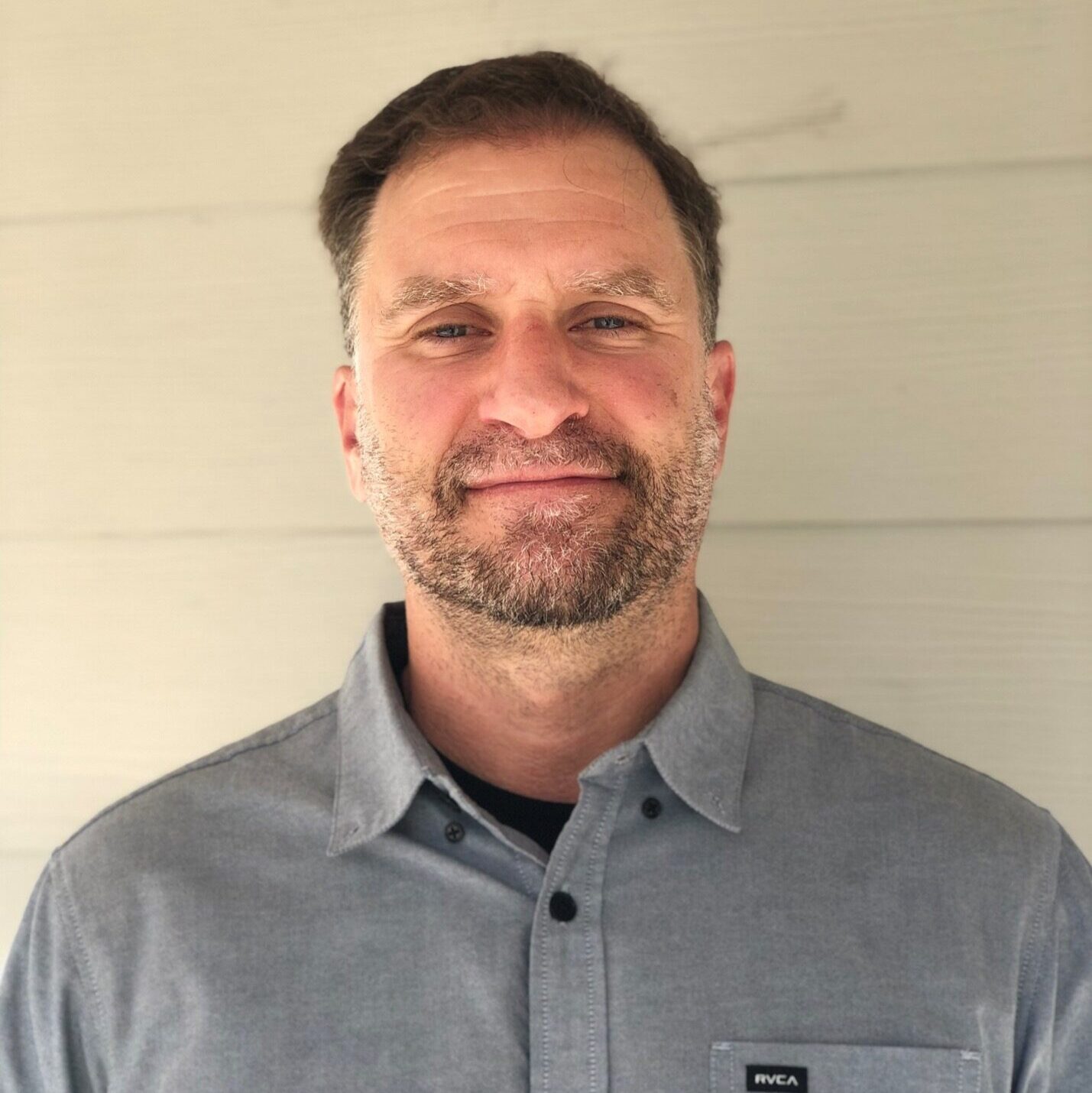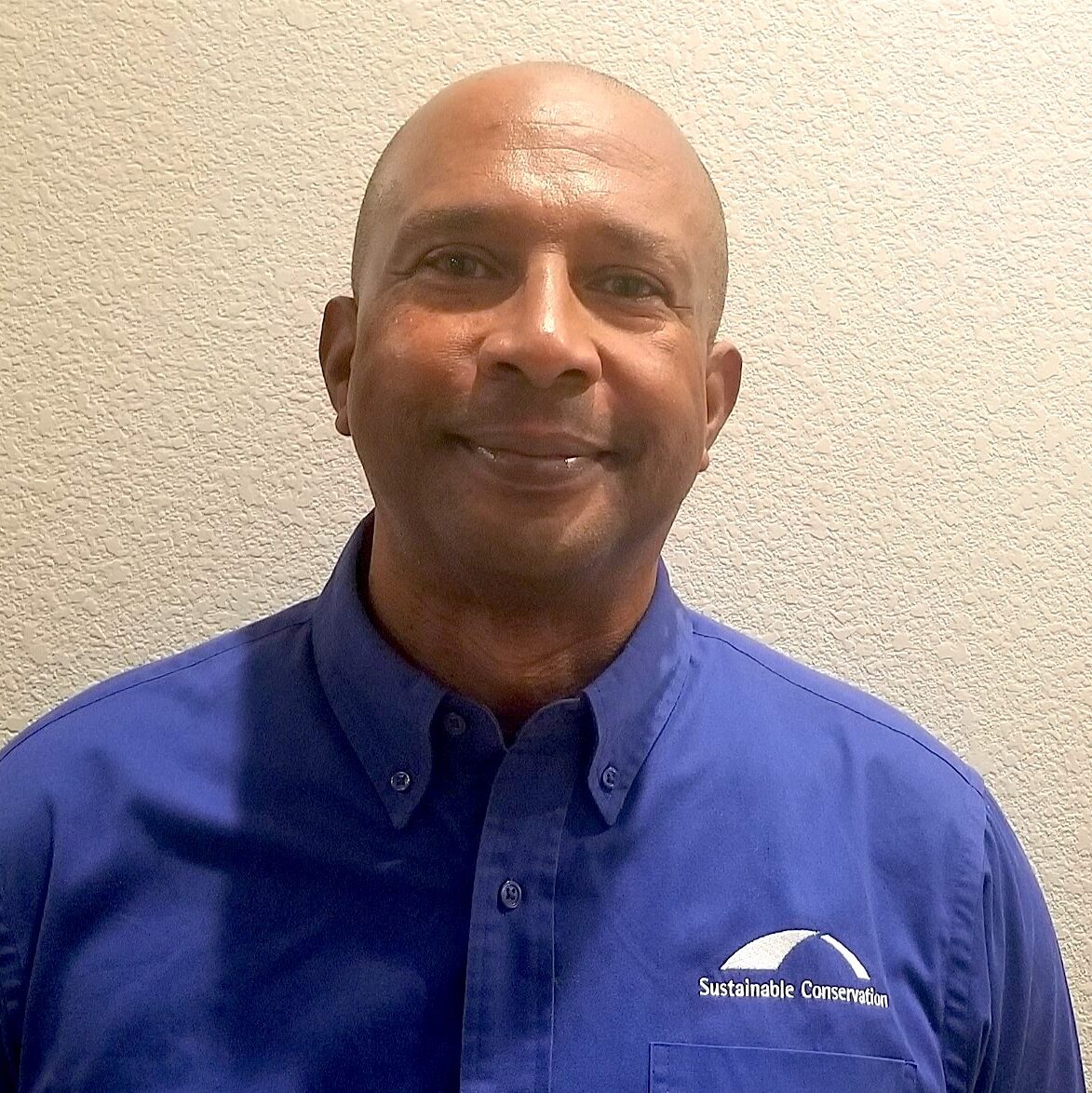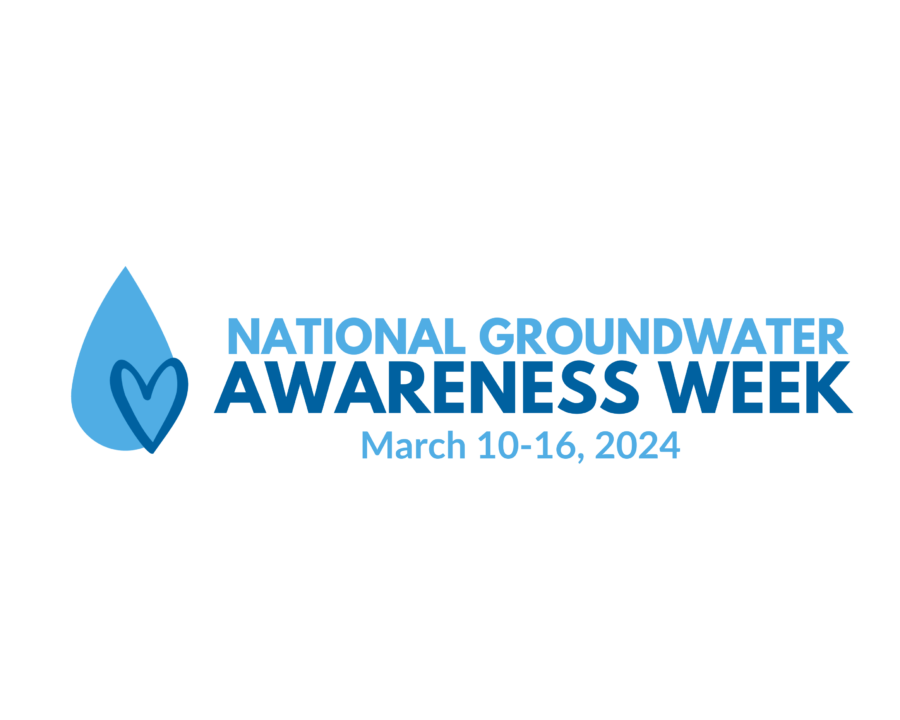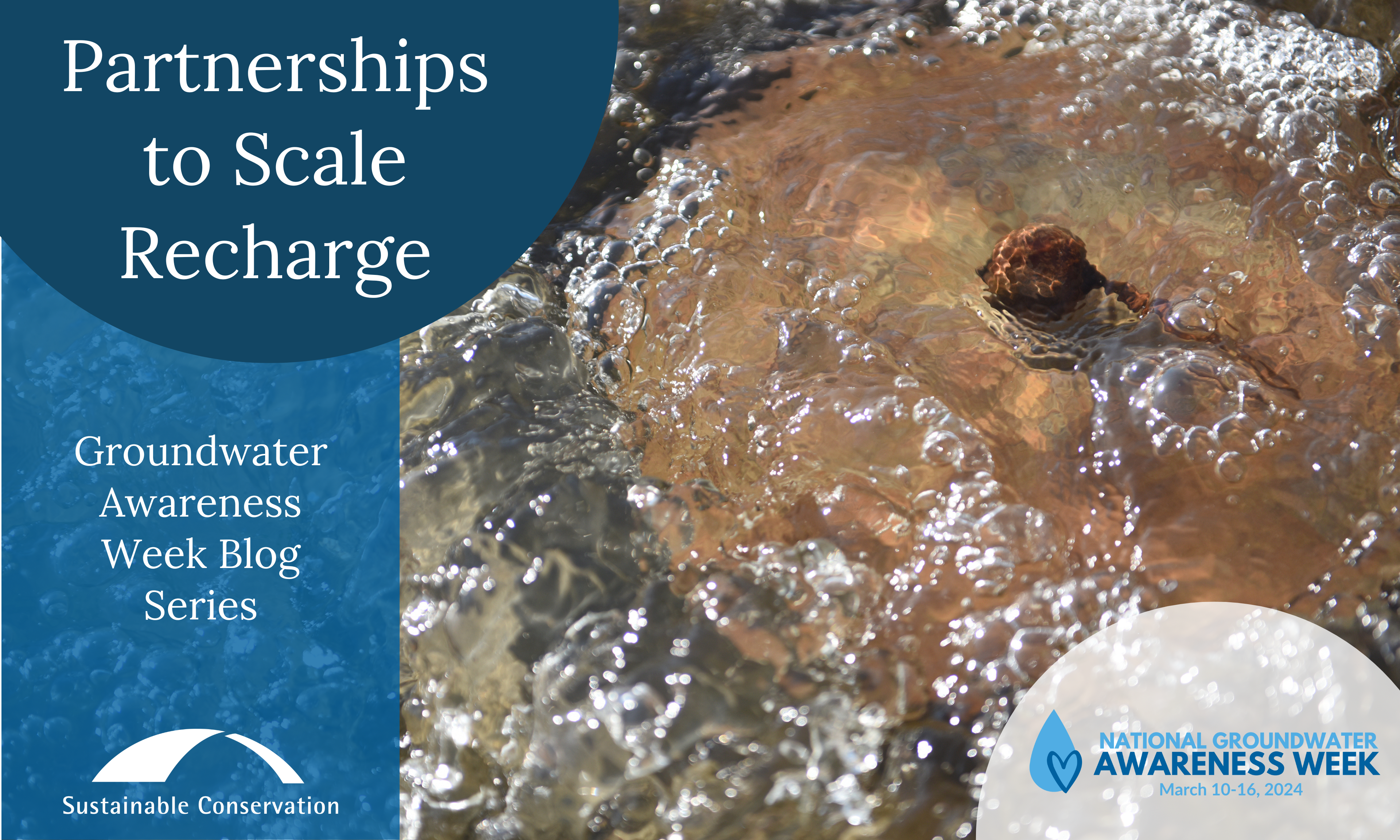
At Sustainable Conservation, we often tout our “ground-up” approach to finding and implementing solutions to our state’s water sustainability puzzle. This approach is especially visible in the partnerships we leverage to promote groundwater recharge in ways that are beneficial for community drinking water, ecosystems, and agricultural water supplies. In this case, the “ground” from which we work is privately owned working farmland, and our agricultural partners throughout the Central Valley play an outsized role in informing our recharge work. These grower, industry, agency, and academic partnerships identify and address three key challenge areas to scaling groundwater recharge: awareness, incentives, and technical assistance.
Awareness
Awareness and understanding of groundwater recharge are the first prerequisites for widespread implementation of the practice. Growers with firsthand recharge experience, such as Sustainable Conservation partners Christine Gemperle and Don Cameron, are knowledgeable and influential advocates for recharge and their testimonials go a long way in encouraging adoption of recharge.
While Sustainable Conservation consistently engages our extensive rolodex of growers to share recharge success stories, our industry partners like the Almond Board of California and American Pistachio Growers are invaluable in amplifying these outreach efforts. These farming associations understand the challenges faced by their growers and are proactive at funding and facilitating recharge research, implementation, education, and outreach to their grower members.
Incentives and Technical Assistance
On-farm recharge is one of the cheapest per-gallon options we have to replenish our state’s groundwater. Yet, in order to fully realize the potential of on-farm recharge in our state, accessible and impactful incentive structures must be available to growers. Unsurprisingly, the irrigation districts with the highest groundwater recharge participation rates are the ones with the most functional incentive programs to encourage growers to be active participants in achieving groundwater sustainability. In some situations, financial incentives are also offered by a third-party agency like the USDA Natural Resources Conservation Service (NRCS), which is currently piloting a cost-share program for groundwater recharge projects.
Hardly anything about recharge is straightforward. Growers and water districts must simultaneously consider a dizzying number of factors such as water rights, soil type and geology, amount of underground storage and depth to the aquifer, crop type, fertilizer application, and nearby water conveyance infrastructure — just to name a few. If not done properly, groundwater recharge can impact crops yields or transport contaminants to the aquifer. Providing resources to growers or landowners who want to recharge on their land can help ensure they conduct recharge to maximize benefits and reduce these risks.

Sustainable Conservation team members with Turlock grower Christine Gemperle. From left to right: Rogell Rogers, Daniel Mountjoy, Christine Gemperle, Ashley Boren, Charles Delgado
Leveraging Collective Knowledge
If raising a child takes a village, sustainable groundwater management takes a whole state. Sustainable Conservation is defined by the company we keep in our partners, and we are proud to play a small part in the diverse, dedicated, and collaborative collective of individuals and groups pursuing cost-effective solutions to scaling groundwater recharge. Find our full list of private sector, government, agriculture, academic, and non-profit partners on the About Us page on our website.
Want to be part of the solution? If you are a grower or landowner in an overdrafted groundwater basin, we would love to talk with you and evaluate your local conditions to determine if recharge makes sense in your area. We can evaluate your farm’s recharge and crop suitability and facilitate conversations between you and your water district and GSA.
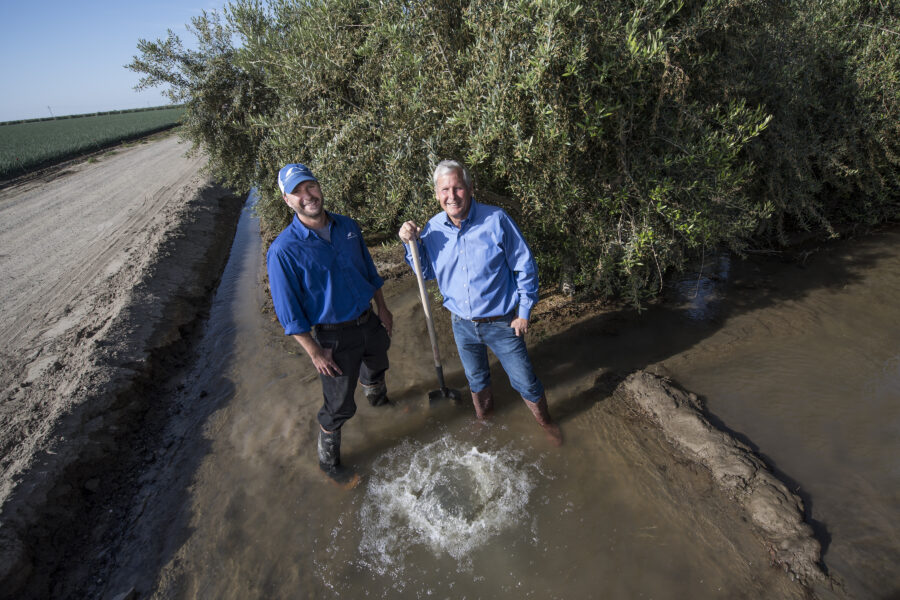
Joe Choperena (left) and Fresno grower Don Cameron are excited about on-farm recharge conducted on Cameron’s orchards!
For more information and materials on groundwater, visit the NGWA website, and stay tuned for the upcoming installments of our Groundwater Week Blog Series!
Authored by:
